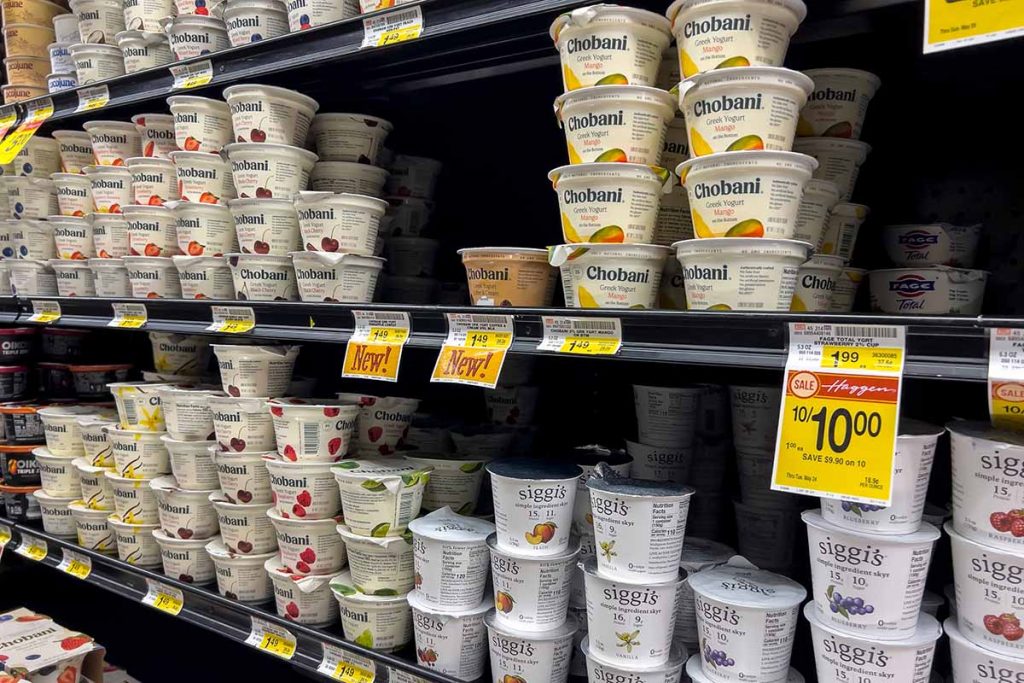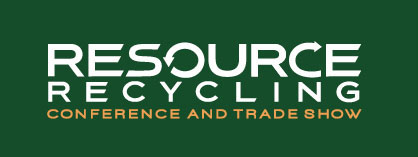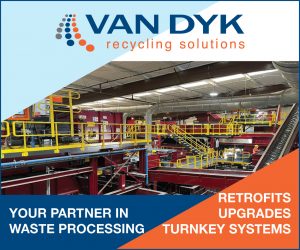
Polypropylene rigid containers have been upgraded to “widely recycled” under the How2Recycle labeling protocol. | Colleen Michaels/Shutterstock
Two years after downgrading rigid polypropylene containers to “check locally,” a label system has returned the material to its previous status, determining at least 60% of the country has access to PP collection.
How2Recycle, which is part of the GreenBlue organization, issues packaging labels that are used by brands. The label framework is designed to be in line with the U.S. Federal Trade Commission’s Green Guides, which regulate environmental marketing claims.
The labeling system has four different levels: “widely recycled,” meaning at least 60% of Americans can divert the material via curbside recycling or drop-off recycling; “check locally,” meaning between 20% and 60% of Americans have access; “not yet recycled,” meaning either fewer than 20% of Americans can recycle it or that it could cause a problem in a recycling facility; and “store drop-off.”
In January 2020, How2Recycle determined that polypropylene (PP) rigid containers were not accepted in U.S. collection systems at a level that would allow them to bear a “widely recycled” label. The move was an early development in what became a wider industry conversation about recyclability labeling, especially in regards to plastic packaging.
Caroline Cox, director of How2Recycle, said in a press release issued July 28 by her group and The Recycling Partnership that due to the “strength and efficacy of the data provided, How2Recycle is confident that this change in eligibility continues to be in line with federal law.”
“While this win should be recognized, it is important to note that this is not the end of the road; the entire value chain should continue to invest in improving the recyclability of all materials and packaging formats,” Cox added.
Steve Alexander, president and CEO of the Association of Plastic Recyclers (APR), said in a statement to Resource Recycling that the change in labeling “should clear up any confusion whether PP should be included in any community collection program.” (APR owns Resource Recycling, Inc., the publisher of Resource Recycling.)
“Demand for recycled polypropylene has consistently outpaced the supply of those containers available to recycle,” Alexander added. “Plastic recyclers have always supported including PP. Since PET, HDPE and PP containers comprise 81% of consumer facing plastic packaging, it simply makes sense to ensure that those three material types at a minimum are included in local programs.”
In July 2020, not long after the labeling downgrade for PP, The Recycling Partnership started a Polypropylene Recycling Coalition to help fund improvements.
The coalition brought together resin suppliers, manufacturers, consumer packaged goods companies and recycling processors to improve PP recovery and recycling and to develop end markets. It has awarded 24 grants totaling $6.7 million, a number that includes four yet-to-be-announced grants, according to the press release.
About 20 million more people now have access to curbside PP recycling than before the coalition was formed, The Recycling Partnership noted. That access increased the amount of PP recovered by an estimated 25 million pounds annually, the press release stated.
In early 2020, the U.S. had a 59% access rate for PP recycling collection, according to the press release, and the current rate is 65%. The Recycling Partnership’s Circular Packaging Assessment tool was used to assess the growth.
Learn more in person
The topic of polypropylene collection will be front and center during the Getting Real on Plastics session at the 2022 Resource Recycling Conference, taking place Aug. 15-17 in Austin, Texas. The discussion will explore the supply-demand gap for key resins and discuss strategies to bring more material into the stream. It’s one part of an info-packed agenda to help move municipal recycling forward. Register today!
“Achieving success for challenged materials is not a narrative often heard in our industry,” said Keefe Harrison, CEO of The Recycling Partnership, in the press release. “It was a mere two years ago when we acknowledged the challenges polypropylene recycling was facing and its uncertain future.”
Harrison added that the coalition committed the industry to “leaning in and taking action in support of the material” and a more circular future.
A version of this story appeared in Plastics Recycling Update on July 28.




